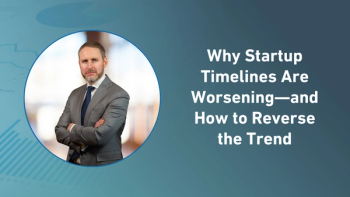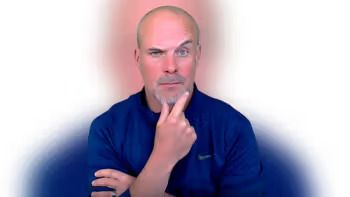
- Applied Clinical Trials-10-01-2002
A Faithful Subject
Both personal health considerations and altruism helped keep this subject in a long-term study.
This month we interview a faithful subject who has stuck with the Womens Health Initiative trial of strategies to improve the health of postmenopausal women despite adverse effects, a 500-mile move, and the early stopping of part of the trial.
Applied Clinical Trials: How did you find out about the trial?
Faithful Subject: A little over five and a half years ago, I received a brochure about the study in the mail. At that time I was working as a certified nursing assistant (CNA). I thought it was a good idea, because womens health issues had not really been addressed. Im 66 years old, and I thought that the study might be important down the road, although I didnt think at the time that it was going to be of any benefit to me. I talked about it to several people I knew who had received the brochures, but they didnt go ahead and contact Womens Health Initiative. I did.
ACT: What were some of the reasons that your friends were hesitant to participate?
FS: They didnt say. You know how people say, Oh, gee, thats an excellent ideamaybe next week?
I was drawn to this for various reasons. My mother lived to be 93. She had never had a Pap smear until she was in her late seventies. She had never had a mammogram. Thinking how my parents lived and what we know now, I just thought maybe a study like this would get information down in black and white and help some people. I have a lot of friends who have had hysterectomies. I thought that this study was important for womens health issues. Also, I had had [some gynecological problems] in the past, and so I thought maybe it would be a good idea to find out about estrogen and some of the other things the Womens Health Initiative was addressing.
So I went ahead and contacted them and went in and had an interview. They explained what was going on, and I said, Yes, I would like to go ahead and be involved.
ACT: Had you already been taking hormone replacement therapy?
FS: I had, but I had stopped because of my age. When I hit my early forties, I had hot flashes that were so intense I couldnt sleep nights. So I contacted my gynecologist, and they put me on the hormones. That was a while ago, but as I remember, I said, Well, if this alleviates my problems, how long will I be on? And he said, How long are you going to live? That was 20-some years ago.
ACT: So you took them and they helped you, and then you tapered off using them?
FS: Yes, I did.
ACT: In this trial, what were your clinic visits like?
FS: They were very professional. Once a year, we would have a full exam, and a mammogram and a Pap smear were necessary to remain in the study. Every six months, you would fill out a questionnaire to see if particular events had occurred. They would check to see what kinds of over-the-counter medications or supplements you were taking, such as vitamins, besides the test pills.
Between visits, they would mail us updates on what was going on with the study, some pertinent things that had come outfor example, that there was a higher tendency for stroke. And then, because people dont always check their mail, they would verify when I would go in that I had read it: Did you see this, and were you aware of that?
If you had any leftover medication, you took it in at those times so they could count it. They asked if you took them every day, or how many times you missed.
I missed one appointment in five years. I had a March appointment, and we had snow in Nevada, and I couldnt come in in person because of the condition of the roads. So they took my information over the phone, I mailed in my unused medication, and they mailed me my new supply.
ACT: Did they give you any kind of a symptom recording sheet or diary to keep track of your symptoms?
FS: Yes, it was calendars on which you made notations for spotting or anything that was pertinent. But we were also told to call a toll-free number if anything happened, and the nurses were excellent in calling back.
ACT: Did you have any medical problems during the study?
FS: When I signed on, I didnt know what I was going to be takingthe real McCoy or a placebo. I was working as a CNA, and theres a lot of heavy lifting. Sometimes I would pull a double shift. Anyway, I started spotting [bleeding]. At that time, being that I had not been taking anything else, I knew that I was taking estrogen. Of course, youre supposed to call if you have any problems. I called and told them, and then they put me on the progestin, and that kind of corrected it. I went off of that during the study a couple of times because they figure that the body will stabilize, and even to the end I was still spotting through even though I had quit work. Women who do more manual labor sometimes have more problems with their periods. I dont know if they published that or not, but when I went in, they said, We are finding that women who do more manual labor instead of sitting at a desk seem to have a few more problems.
ACT: During the study, you moved to a different state.
FS: I thought the study was important enough that I asked if I could remain in the study when I moved, and they said, Of course. They like to keep people in it as long as they can.
ACT: But now the closest site for you is 100 miles away.
FS: Yes. Although when I did go in and have a sonogram to check my innards because of my bleeding, they set up an appointment for me in [a city 50 miles away]. So that was nice; it saved me a little extra drive. But I loved working with the people in both places.
ACT: So you were never tempted to drop out of the study?
FS: No, it never entered my mind. Thats not because Im dumb, either. [laughter] I had been instructed [about the risks], but I just thought that as a widow, and at my age, maybe it would help my grandkids or something down the line. I had no idea that the findings were going to get to the point where they decided it was not good to proceed [with the estrogen part of the trial] for women with uteruses.
ACT: How did they notify you that the estrogen part of the trial was being stopped?
FS: I called the nurse practitioner for some other reason, and she said, Have you seen the national news? She said, The story is going to be breaking tomorrow in local news. We are in the process of calling all the people, and we will be contacting everyone afterwards to inform you if you were on the placebo or the study medication. I reminded her that I already knew what I was taking, but somebody else on the staff did call and verify that I had received all the information.
ACT: How did you know whether you were receiving the drug or the placebo?
FS: Well, I had to know, because I was bleeding. When I called in [about my bleeding] and they sent out the progestin, it was pretty obvious that I was getting estrogen. They did perform other tests to verify there were no further problems.
ACT: Is there anything that you think the study personnel should have done differently?
FS: Ive never been in a trial like this before, but I had worked in the health field for a few years. And I was quite impressed with all of the personnel. They treated you like you were the most important one out of the 18,000.
It seems to me like it was a very well-organized thing. If it had been kind of fly-by-night, I probably would have stopped, but I was quite impressed. It didnt make any difference who I spoke to or which nurse examined methey were always willing to answer questions. If they didnt know an answer when you talked to them on the phone, you got a call back after they pulled your file.
ACT: So if you had an opportunity to participate in another clinical trial, would you do it?
FS: Yes, I would probably go ahead if I thought it would be a benefit. Not only for womens health, but I was drawn to this because most of the tests that had been going on when I was younger all concerned men, and womens health issues had not been addressed.
ACT: Has your experience changed anything about your own health habits?
FS: I dont think that a pill is the way to correct every problem. Like, you know, people taking pills to lose weightI dont think so! But now the medical field has the results of this test, and that should wake a lot of people up. But if my doctor were to say, I think you should be taking some estrogen because of this or that, I would probably do it. They know better. I know that there are alternatives, but Ive known that all along. I took some of those in the last 20-some years. As a matter of fact, I take calcium plus the test pills now. [Faithful Subject is still participating in the calcium and vitamin D supplementation part of the study.]
The Womens Health Initiative was also doing a dietary study. Probably because of the work I was doing and my husbands health, I was eating properly and I couldnt join that study. [They were looking for] people who were overweight or not exercising, and they said, You dont meet the specifications for what we are looking for. But I would have joined it. I just thought that it was an important study.
Articles in this issue
over 23 years ago
IRBs in the Spotlightover 23 years ago
Building a Home Networkover 23 years ago
A Dream Unfulfilled: European Clinical Trials Rules Are Not Workingover 23 years ago
Learn Before You Leapover 23 years ago
Using IVRS in Clinical Trial Managementover 23 years ago
Bert Spilkerover 23 years ago
The Virtual Training Processover 23 years ago
Adding Centers to Boost Subject AccrualNewsletter
Stay current in clinical research with Applied Clinical Trials, providing expert insights, regulatory updates, and practical strategies for successful clinical trial design and execution.




